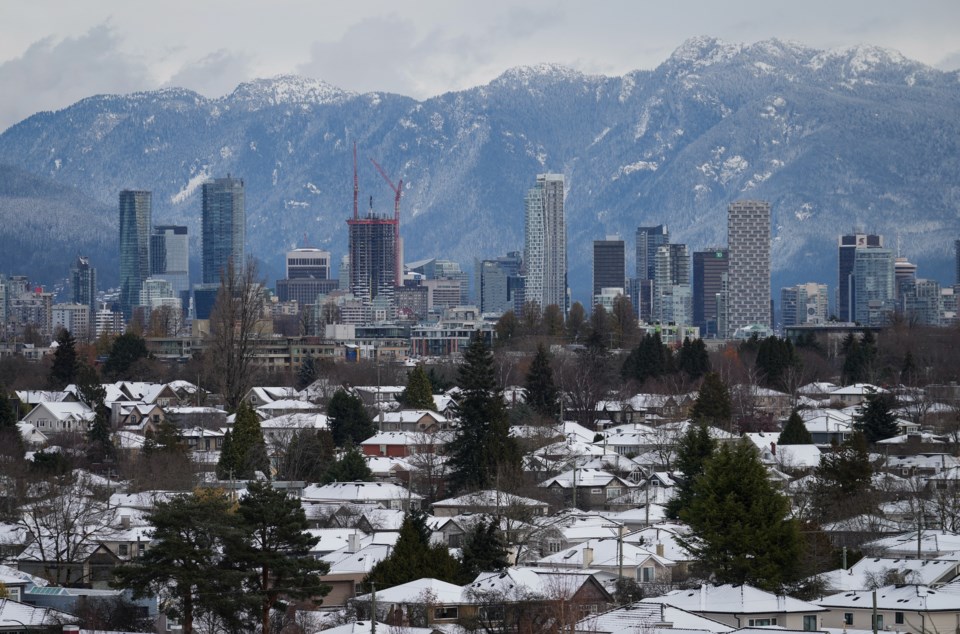CALGARY — With Canada's already-hot rental market expected to come under even more pressure in 2023, experts say tenants should guard against "renoviction" by educating themselves about their rights.
The term renoviction is used to describe a situation when a landlord cites the need for major renovations as the reason behind an eviction. While most Canadian jurisdictions have rules in place to protect tenants — such as limiting the types of repairs that justify requiring renters to move out, or specifying how much notice a landlord must give — tenant advocates say the practice still happens regularly.
For example, a recent report from Ontario's Advocacy Centre for Tenants (ACTO) found there has been a 294 per cent increase in landlord applications to evict tenants for renovations or conversions at the province's Landlord and Tenant Board since 2015-16.
Douglas Kwan, ACTO's director of advocacy and legal services, said he's also seeing an increase in "own-use evictions," where a landlord claims to need to take a unit back so they or a family member can move in.
Both of these practices, Kwan said, are sometimes used by landlords to get rid of existing tenants so they can rent apartments to new tenants at a much higher rate.
"We’re seeing all types of situations in which landlords are seeking to end the tenancy to take advantage of the market," Kwan said.
"These instances are increasing."
According to a November report from Rentals.ca, average rents in Canada have increased 10.5 per cent in 2022, compared to the pre-pandemic average from November 2019.
In the most expensive markets of Vancouver and Toronto, rents have increased by approximately 24 per cent in the last 12 months alone, according to the same report.
The Canada Mortgage and Housing Corp. warned earlier this fall that it anticipates increased pressure on rental markets in 2023, as rising interest rates put home ownership out of reach for more Canadians.
That could mean more people will find themselves in a similar situation to Jonathan Roth, a Vancouver resident who found himself facing an eviction notice in May of this year, for an apartment he had lived in since 2017.
“It was rough," said Roth, who said the building he lived in was bought by new owners, who one month later indicated they wanted everyone out for renovations.
Roth said he was fortunate in that the landlords offered everyone six months' worth of rent to get out within 30 days. (Under B.C. law, landlords must offer renovicted tenants one month's worth of rent.)
"I think they just wanted us out without any headaches," he said.
"Just doing a Google search, it looks like apartments in that building are now going for $2,700 a month, which is about $1,000 more than what I was paying."
Kayla Andrade, founder of Ontario Landlords Watch -- a group that advocates on behalf of the province's small landlords -- denies that renovictions are happening in significant numbers.
However, she said she believes rent control policies in provinces like Ontario are reducing the overall housing stock, and indirectly leading to some evictions.
"Landlords are seeing all of their expenses increase, and they have no way to increase the rent," Andrade said.
"Some landlords are just leaving the industry completely, and taking the units back. So we are seeing some own-use evictions."
In most jurisdictions, landlords need the permission of the Landlord and Tenant Board before they can evict tenants for the purpose of renovations.
But many tenants may not know that, and may move out as soon as a landlord asks them to.
"I think a lot of tenants just walk away, because fighting it is too hard," said Lesli Boldt, who was evicted in 2018 from the Vancouver apartment she'd lived in for more than a decade.
Boldt, who ran for city council in 2022 in part because of that experience, said she wasn't able to prove that what had happened in her case was a renoviction, since her landlord told her a family member needed the unit.
"What I do know is I lost my home of 13 years," she said.
"So I would advise people to find out what your rights are before you're evicted ... Be very clear what kind of rental agreement you're signing, and document your communications with your landlord."
Kwan said there are things tenants can do to protect themselves, the most important of which is knowing the rules in the city and province you live in.
"If you receive a letter or notice that your landlord intends to evict you, obtain legal advice," Kwan said.
"Make sure you have the right information before you take that next step, because sometimes that notice is not in compliance with the law, and that landlord may have no right to evict you.”
Tenants can also work proactively to build a good relationship with their current landlord, Kwan said, by being clean, courteous, and paying rent on time.
However, from Kwan's perspective, renovictions, own-use evictions, and other similar landlord practices are unlikely to go away until governments do more to address Canada's affordable housing crisis.
"There is not enough supply of rental housing in Ontario, just like everywhere else," Kwan said.
"What tenants really need right now is for governments to commit funds to provide true affordable housing."
This report by The Canadian Press was first published Dec. 22, 2022.
Amanda Stephenson, The Canadian Press



